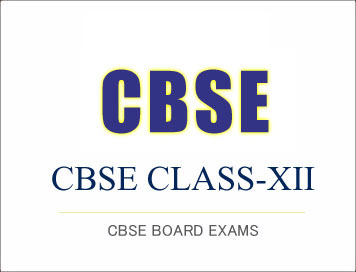CBSE 2017-18 Syllabus Class-12 : English
Disclaimer: This website is NOT associated with CBSE, for official website of CBSE visit - www.cbse.gov.in

CBSE Class-12 Syllabus 2017-18
Subject: English
Background
The course is intended to give students a high level of competence in English with an emphasis on the study of literary texts. The course will provide extensive exposure to a variety of rich texts of world literature as well as Indian writings in English, including classics; develop sensitivity to the creative and imaginative use of English and give them a taste for reading with delight and discernment. The course is primarily designed to equip the students to pursue higher studies in English literature and English language at the college level.
Objectives
The general objectives at this stage are:
i) to provide extensive exposure to a variety of writings in English, including some classics to develop sensitivity to literary and creative uses of the language.
ii) to further expand the learners' vocabulary resources through the use of dictionary, thesaurus and encyclopaedia.
iii) to develop a taste for reading with discernment and delight.
iv) to critically examine a text and comment on different aspects.
v) to develop proficiency in English both in receptive and productive skills. At the end of this course, the learner
i) grasps the global meaning of the text, its gist and understands how its theme and sub-themes relate.
ii) relates to the details provided in the text, for example, how the details support a generalization or the conclusion either by classification or by contrast and comparison.
iii) comprehends details, locates and identifies facts, arguments, logical relationships, generalization, conclusion, in the texts.
iv) draws inferences, supplies missing details, predicts outcomes, grasps the significance of particular details and interprets texts.
v) assesses and analyzes the point of view of the author.
vi) infers the meanings of words and phrases from the context; differentiates between apparent synonyms.
vii) appreciates stylistic nuances, the lexical structure; its literal and figurative uses and analyses a variety of texts.
viii) identifies different styles of writing like humorous, satirical, contemplative, ironical and burlesque.
ix) can produce text-based writing (writing in response to questions or tasks based on prescribed as well as 'unseen' texts)
x) develops the advanced skills of reasoning, inferring, analysing, evaluating and creating.
xi) develops familiarity with the poetic uses of language including features of the language through which artistic effect is achieved.
CLICK HERE TO DOWNLOAD
Courtesy: CBSE